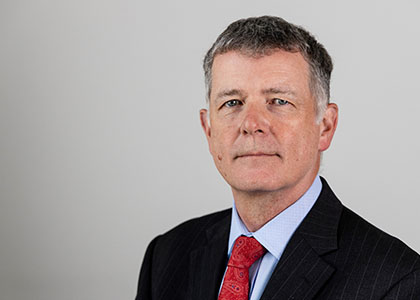
News
LGBT+ Apology

19 February 2021
The Chief of MI6, Richard Moore CMG, has issued a public apology for the treatment of LGBT+ candidates and staff before the Government-wide vetting ban was lifted in 1991. The end of the ban was officially announced on 23 July 1991; the MI6 apology comes in LGBT+ History Month, thirty years after the ban was lifted.
Hello, I’m Richard Moore, Chief of the Secret Intelligence Service, MI6. For well over a century the intelligence professionals of MI6 have dedicated their lives to the security of the United Kingdom.
During times of war and peace, our work carries on in secret, keeping us safe at home and protecting British interests and values overseas.
But secret does not mean unaccountable. And today I want to publicly address an issue from our past, and so important to our future, for the first time.
Same-sex relationships were decriminalised in 1967. But until 1991 there was a security bar to LGBT+ individuals serving in our intelligence Agencies, because of the misguided view that they would be more susceptible to blackmail than straight people.
It meant that until 1991, being openly LGBT+ in MI6 would cause you to lose your job or prevent you from being allowed to join in the first place.
Committed, talented, public-spirited people had their careers and lives blighted because it was argued that being LGBT+ was incompatible with being an intelligence professional.
Because of this policy, other loyal and patriotic people had their dreams of serving their country in MI6 shattered.
This was wrong, unjust and discriminatory.
Today, I apologise on behalf of MI6 for the way our LGBT+ colleagues and fellow citizens were treated, and express my regret to those whose lives were affected.
Being LGBT+ did not make these people a national security threat. Of course not. But the ban did mean that we, in the intelligence and diplomatic services, deprived ourselves of some of the best talent Britain could offer. Ready to serve but denied that opportunity.
Even after the ban was lifted in 1991, its effects lingered. Some staff who chose to come out were treated badly for not having previously disclosed their sexuality during their security vetting. Others who joined in the period post-1991 were made to feel unwelcome.
That treatment fuelled a reluctance to be their true selves in the workplace. This was also unacceptable.
I pay tribute to the extraordinary resilience and loyalty to Service and Country of LGBT+ colleagues past and present who slowly turned the tide by educating their workmates and fighting for change.
As well as apologising, I am thanking current and former LGBT+ colleagues for the contribution they have made, and continue to make, to MI6 and to our country.
We still have more to do to become a fully inclusive employer, and my goal for MI6 is to make it a workplace where you can always bring your true self to work.
MI6 is open to people from all backgrounds, races, ages, genders, sexualities and all ways of thinking.
Diversity makes us more effective, inclusion makes us stronger.